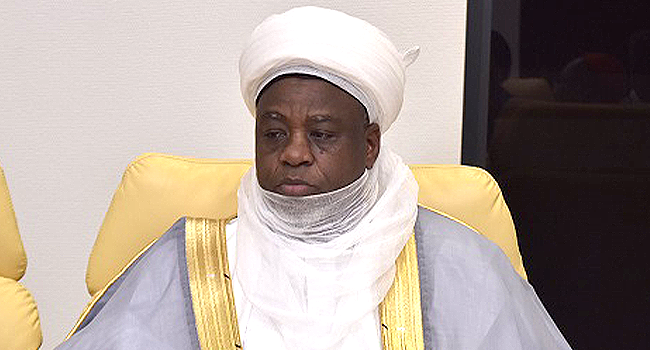THE Middle Belt Forum (MBF) has categorically rejected a proposed clause in the National Council for Traditional Rulers of Nigeria (Establishment) Bill, 2024, which seeks to designate the Sultan of Sokoto and the Ooni of Ife as permanent co-chairmen of the council.
In a strongly worded statement issued in Abuja on Monday, and signed by its national spokesman, Luka Binniyat, the Forum described the move as a distortion of history, an affront to the dignity of other monarchs, and a violation of Nigeria’s secular and federal character.
The bill, sponsored by Senator Simon Bako Lalong (Plateau South) himself a son of the Middle Belt and the Gwad-Goemai of the Goemai ethnic nation—passed its second reading in March and is currently being reviewed by the Senate Committee on Establishment and Public Service.
At the heart of the MBF’s objection is the proposed institutionalization of the Sultan of Sokoto as a permanent co-chair of the traditional rulers’ council, a move the Forum says will erode the historical relevance and equal standing of numerous Middle Belt monarchs.
“We unequivocally reject, abhor, and condemn this clause. The Sultan of Sokoto cannot be permanently placed above traditional rulers whose kingdoms far predate the Sokoto Caliphate,” the MBF said.
The Forum laid out detailed historical and cultural arguments to support its stance, asserting that many monarchs in the Middle Belt—including the Aku Uka of Wukari, Attah of Igala, Tor Tiv, and Etsu Nupe—lead institutions that are older and more culturally rooted than the Sokoto Caliphate.
They stressed that:
The Kwararafa Confederacy (represented today by the Aku Uka) existed long before the Sokoto Jihad of 1804.
The Attah of Igala represents an ancient kingdom that resisted Islamic conquest.
The Tiv Nation, led by the Tor Tiv, was never conquered and maintained an independent social structure.
The Nupe Kingdom predates the Caliphate and maintains distinct traditions despite forced Islamic influences.
The MBF also made reference to the Shehu of Borno, noting that Kanem-Borno embraced Islam in the 11th century, centuries before the Sokoto Caliphate was established.
The Forum strongly objected to the Sultan’s dual religious and traditional role, warning that institutionalizing his leadership could undermine Nigeria’s secular foundation.
“The Sultan of Sokoto is primarily a religious leader, widely acknowledged as the spiritual head of Nigerian Muslims. Placing him permanently over a secular national council would alienate other faiths,” the statement argued.
They also expressed outrage over the Sultan’s association with the Miyetti Allah Cattle Breeders Association of Nigeria (MACBAN), noting his role as permanent patron of the group, which many Middle Belt communities blame for violent attacks and displacement caused by armed herders.
“It is a grievous insult to the thousands of victims in the Middle Belt to institutionalise the Sultan, who has not sufficiently condemned or distanced himself from the atrocities linked to MACBAN,” the statement read.
The Middle Belt Forum warned that if the bill is passed with the contentious clause and signed into law, it would mobilise all Middle Belt ethnic nationalities to boycott the National Council of Traditional Rulers.
“Our traditional rulers will neither recognise nor attend meetings of a council whose leadership is permanently skewed in favour of a non-indigenous and religiously aligned figure,” the Forum warned.
In addition, the MBF said it would exercise its constitutional rights to establish an autonomous Council of Middle Belt Traditional Rulers that would reflect the cultural and historical identity of its peoples.
To preserve national unity and equity, the Forum proposed several alternatives:
Chairmanship of the Council should be rotational and tenure-based, allowing representation across geopolitical zones and ethnic blocs.
Traditional rulers should have the power to elect their own chairperson(s) through a transparent and inclusive process.
“A national traditional rulers’ council must reflect values of equality, justice, and historical truth,” the MBF stated.
The Middle Belt Forum affirmed its commitment to national unity built on mutual respect and fairness, while warning that any attempt to institutionalise a religious or culturally subordinate hierarchy would be lawfully and democratically resisted.
“We stand firm in the belief that Nigeria must move forward with justice, not religious supremacy or colonial-era distortions. We will not be silent.”







